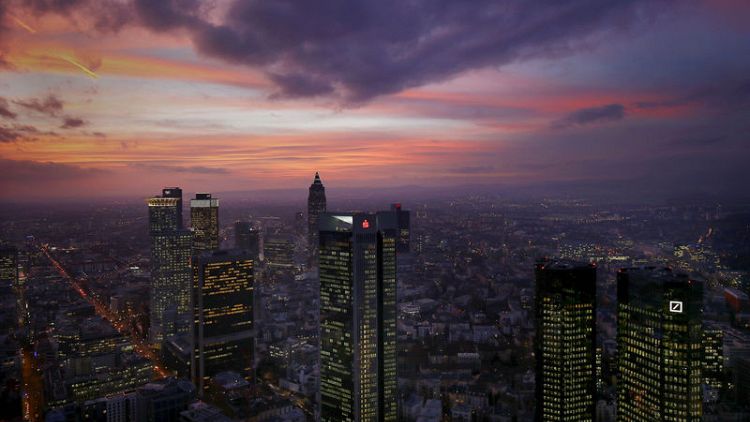BERLIN (Reuters) - German annual inflation accelerated at a slower pace in November but stayed well above the European Central Bank's target, supporting the central bank's case for gradually rolling back its massive stimulus in the euro zone.
German consumer prices, harmonised to make them comparable with inflation data from other European Union countries, rose by 2.2 percent year-on-year after an increase of 2.4 percent in the previous month, the Federal Statistics Office said on Thursday.
The ECB targets inflation of close to but below 2 percent for the single-currency bloc as a whole.
With price pressures building in the euro zone, the ECB last month confirmed its plan to end its 2.6 trillion euro ($3 trillion) bond-buying programme at the end of this year and raise interest rates for the first time since 2011 sometime after next summer.
On the month, EU-harmonised prices rose by 0.1 percent, the preliminary numbers showed, compared with the forecast for a 0.2 percent increase.
A breakdown of the data showed that energy prices rose more in November than in the previous month, while the cost of food, goods, services and household rents increased by the same amount or at a slightly slower pace than in October.
Energy prices have risen in Germany despite oil prices falling due to a relentless rise in U.S. crude supply and Saudi Arabia's insistence that it will not cut output on its own to stabilise the market.
This is because the cost of delivering oil in Germany has risen as suppliers had to forgo ship deliveries as a dry season extended into autumn, resulting in falling water levels that shut vital supply routes through rivers and canals in the western state of North Rhine-Westphalia.
Prices for energy rose by 9.3 percent this month, the highest increase since 2011.
The energy prices are unlikely to dampen private consumption in Europe's economic powerhouse, which continues to provide positive impulses for a growth cycle facing headwinds from weakening exports.
Separate data released on Thursday by the Federal Labour Office showed that jobless numbers fell by more than expected in November, pushing the unemployment rate to a record low.
In addition, the Statistics Office said that the income of Germany's 17 million workers with collective bargaining agreements had risen by 3.7 percent year-on-year in the third quarter thanks to exceptionally generous bonuses.
Marco Wagner of Commerzbank said in a note that he expected German underlying inflation, which excludes energy and food prices, to continue on an ascending trajectory next year. This is in line with the ECB's own expectations.
"We expect core inflation to accelerate slowly in 2019 and reach an year average of 1.7 percent given the continuing upswing in Germany," Wagner said.
(Reporting by Joseph Nasr and Rene Wagner; Editing by Michelle Martin and Alison Williams)



